CARMEN COLAZO: GENDER EQUALITY IN PARAGUAY? THERE’S NO SUCH THING!
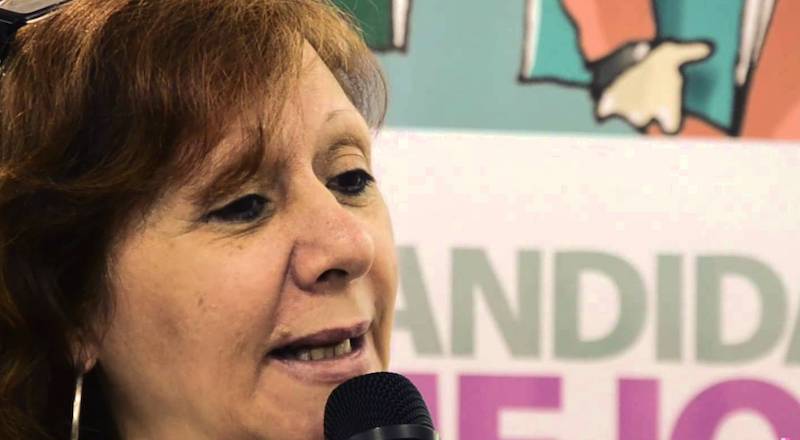
Paraguay is definitely not a country known for its gender equality. Quite on the contrary. It is speculated that due to historical happenings, it’s one of the most chauvinistic countries in whole South America. Why? Because during the War of Triple Alliance (1864–1870), most Paraguayan men were killed and the country was left with a nearly all-female population who would do anything to win over the hearts of the few remaining men. This, consequently, lead to men a) getting away with anything and b) getting used to women serving them at all times.
Carmen Colazo is a lawyer whose merits in gender related issues go way beyond those of many others. For more than three decades she has been involved in the politics and legislation concerning human rights, equal rights and gender issues, not only in Paraguay but in the rest of Latin America as well. She’s the founder and first Director of Education of the Ministerio de la Mujer (the Ministry of Women) – an institution founded in 1993 in Asunción to defend women’s rights in Paraguay. She’s also Head of the Academic Department of the Paraguayan Supreme Court, and used to be advisor for the Commission of Social Equality and Gender at the Chamber of Deputies.
Carmen Colazo, expertise at maximum
In addition to the above, Colazo has been a UN expert for gender related issues and their evaluation, and has worked extensively as an academic on gender issues – not only in Paraguay, but in the neighboring countries as well. She has coordinated the network of Women, Gender and Equality development of the Colegio de las Americas (COLAM) at the Organisación Universitaria Interamericana (OUI), which links together all academic programs dealing with gender in the three Americas (with headquarters in Montreal, Canada). In Córdoba, Argentina, Colazo has created a Master’s Program in Human Development at the National University (Universidad Nacional), which focuses on gender issues and human rights.
Carmen Colazo is a member of the cabin of Cristina Muñoz – a group which participated in organizing the fourth world conference of UN Women in Beijing, China in 1995. Moreover, she has participated in drawing up the Convention of Belem do Para for OEA (La Organización de los Estados Americanos) for preventing, sanctioning and eradicating violence against women. She is also the founder of various NGOs, such as Amnesty International Paraguay and Tiempo Nuevo, which works on the empowerment of female politicians.
An interview with Carmen Colazo
Fascinated by meeting a person who actively fights for human rights and gender equality in a country where such is not the norm, I interviewed Carmen Colazo on her work and on the current situation of women in Paraguay. (Not least because I am a female cycling alone through Latin America, and more than once I have been warned by Latin Americans themselves about the chauvinism of the Latin cultures.)
You have been working with gender issues for all your adult life. What got you started and why are gender issues and women’s rights important to you?
“I’ve always wanted to fight for women’s rights, because I have a daughter who deserves a better world. Moreover, women have always been oppressed and we deserve equality. When still living in my hometown Córdoba, Argentina, I actively participated in movements dealing with women and human rights. After moving to Paraguay after the fall of the dictatorship, this continued in this new home country of mine. Here, I was united with women who eventually talked me into founding the Ministry of Women (Ministerio de la Mujer), with me being its first director and later its consultant.”
What exactly is the Ministry of Women and what does it do?
“Ministry of Women is the institution that creates, executes, monitors and evaluates all politics dealing with women and gender in Paraguay, and to a certain extent also abroad. These politics are done according to the plan of action of Beijing, which all member states of the United Nations should follow. They are strategic guidelines, actions and objectives divided into twelve categories (such as education, health, work, political participation, culture, communication etc.), which all states apply according to the reality of their country and the state budget. At national level, we also follow the Convention of Belen do Para.”
How are these guidelines and objectives implemented in practice in Paraguay?
“The Ministry of Women has been actively involved in reforming civic codes and laws concerning criminal penalization in gender related issues. Its most important emphasis at present is the culture of equality, which is nearly inexistent in Paraguay. Just imagine, Paraguayan women were granted the right to vote only in 1961, which was the result of the Suffragette movements around the whole world (Strangerless: Finland was the third country in the world to give women the right to vote back in 1906). In the extremely chauvinistic country Paraguay is, the discrimination for sex and gender is a major issue and an immense field to work on – you have to begin all the way from the educational system and work your way into work-related politics, so that women no longer continue being the ones with the worst jobs. There is no equality and what women here need is empowerment.”
Where does the Ministry of Women receive its monetary and functional support from?
“Basically, the whole gender issue is complicated in Paraguay, yet the ones who have favored local gender policies are UN Women Paraguay, PNUD (United Nations Development Programs) and international cooperations. Sometimes the ministry of women does what it does due to the support of cooperations, not due to the state. When the ministry was funded, we received a lot of help and consulting from the Institute of Women in Spain. They also told us there would be two topics which would be extremely difficult to fight: abortion and prostitution. Yet, somehow we’ve tried. However, since year 2000, Bush has been in charge of creating policies which have weakened the role of gender a great deal, mainly because of his religious ideologies. Due to his doings, gender issues have reverted from the advances that the world was beginning to see.”
Carmen Colazo, you say you knew from the very beginning that abortion would be a difficult topic to deal with in Paraguay. What is the current situation of abortion here?
“First of all, since 1992 Paraguay is legally not Catholic anymore. According to law, the country now accepts all forms of religion and worship and the law just ‘recognizes the contribution of the church’. So, legally the constitution of the country is very democratic. Yet, in practice the church has huge power over everything, even abortion. The article 4 of the 1992 Constitution, speaks about the right to life and expresses that the right to life starts from conception. However, it still allows cases of non-punishable abortion. These cases are the ones concerning the mother’s health: if the mother is in poor health, abortion is not punishable. Otherwise, it is.”
So basically, abortion under most circumstances is forbidden. What does this mean in practice?
“For example, women who know to be pregnant with children with dis-capacities, cannot abort. Underaged women cannot abort. Women who have been raped cannot abort. However, this is barbaric hipocracy. There are no women imprisoned for abortion. In fact, the number of abortion is extremely high and people are well aware of this. There are hundreds of cases where women are said to die of ‘childbirth’, yet everyone knows these are illegal abortions which are a huge risk of death for Paraguayan women. Also in the ministry we constantly deal with women who have gone through clandestine abortions.”
If abortion is illegal, what is the situation of sexual education in Paraguay? Is there such?
“It has been more than difficult to implement sexual education into the educative system. From the Ministry of Women we work with the Ministry of Education in programs related to equality and women’s educational opportunities. Once we managed to get one page of text into school books, but even female teachers would cut that page out. They were too embarrassed to talk about these topics and did not agree with the idea of sexual education at all. They just kept repeating that God was father, a man…”
Is there any hope for sexual education making it into the school curricula in the future?
“We’ve desperately tried to make corrections into the curriculum, but with no success whatsoever. In fact, the Ministry of Education is the most difficult of all institutions when it comes to sexual education. The Ministry of Health is a lot more flexible. They see cases concerning gender and sex and cannot close their eyes. But the Ministry of Education thinks that talking about sex will cause everyone to have sex. And this does not only apply to Paraguay, but to Córdoba as well, which is supposed to be a progressive and civilized province in Argentina. There, we’ve done gender education for teachers, but they just cant’t handle it. They cant’t speak about these topics.”
You say people in this area completely ignore gender issues. What does that mean?
“In the gender system gender is divided between masculinities and femininities. We don’t even speak about men and women. There are femininities in male bodies and vice versa, but in local schools, this is ignored and kids are lead towards the ‘correct’ gender. According to most teachers, there are boys and girls and nothing in between. As a matter of fact, a teacher in Córdoba once proudly told us how one of her male students had not wanted to play with the other boys. He wanted to cook and play with dolls, but the teacher ‘managed’ to force him back to car games. And she saw it as a personal success stiry. And we just kept asking her ‘why?’. All she answered was ‘because he’s a boy’.”
What about the other difficult topic which you mentioned before, prostitution?
“There is a culture of slavery in this country which goes all the way back to history and is currently reflected in poverty. This culture can be seen in all levels of the society and also in prostitution: selling one’s services is not punishable, but pimping is. Poor people often have slim choices of work, so they end up working as sex slaves for the upper classes in order to earn their bread. As to the discrimination of the LGTB community and their minimal inclusion in the society, many gay men are forced to live on prostitution. The same goes for transgenders and transvestites.”
In addition to abortion and prostitution, Latin America is a continent where violence against women is a much discussed topic. Recently, the Argentinian campaign #NiUnaMenos (not one less) on femicide awareness has gained huge coverage across all social media. What’s alarming is that most of these cases are cases of domestic violence (as opposed to e.g. rapes on the streets). Is this also true to Paraguay?
“There are no accurate statistics on anything, but of all violence in Paraguay it’s suspected that 90% is against women and girls. The thing is that Paraguay is a very patriarchal country where men are very chauvinistic and can do whatever they want with women. In no Latin American country does domestic violence have anything to do with age or social class. At the Ministry, we’ve had complaints from women from high classes, wives of military officials, wives of important politicians. And the culprits are nearly always people who are close to the women. It’s very common for the offenders and rapists to be fathers, uncle, grandfathers, friends of the family, godfathers, brothers, cousins. That’s why it’s said that the most insecure place for women can be their own homes, not the streets. There’s a lot of incest and even more so on the countryside, because there it’s not considered such an issue. Imagine, not even so long ago it was considered completely normal for the men of the family to take the virginity of the women in the family.
Carmen Colazo, what is being done in Paraguay in order to fight domestic violence?
“The Ministry of Women has a counseling service called SEDAMUR (Servicio de Atención a la Mujer) which attends and gives information to women who have been victims of domestic violence or gender related issues. In 2014 we carried out a study with politician and diplomat Ana Baiardi and CEMAF (Centro Superior de Estudios de Administración y Financias Públicas Para el Desarrollo) on domestic violence in four different provinces of Paraguay. The results of the quantitative and qualitative study, which were published in a book by the Ministry of Women, were alarming. But at least they caused for the ministry to start executing a serious plan against domestic violence. We decided to draft an integral law concerning violence against women in Paraguay. It was already approved by the deputies and now it’s waiting to be approved by the senators.”
Talking about deputies, you used to be an advisor of the Commission of Social Equality and Gender for the Chamber of Deputies in Paraguay. What has this taught you?
“Paraguayan politics is a demanding field to work on. We are one of the few countries in the world that has 20% women representatives in both chambers of the parliament, or even less, actually. According to law it should be 20%, but that law isn’t followed. In fact, the percentage of female representatives in the parliament is only 16%, and those who are there know basically nothing about gender issues. Except for a politician named Rosio Casco who has a great conscience on the topic, such as does Senator Esperanza Martinez. In addition, there are a few men, like Senator Carlos Filizzola Pallarés from the Pais Solidario party, who are more awake. There are these progressive people, but they are definitely the minority and never make it to the important parliamentary positions.”
What, in your opinion, ought to be done concerning Paraguayan politics?
“Well, we definitely need more quality representatives. Women and men who have at least some kind of a conscience on gender issues. And we need to concentrate on education, because that’s where everything starts. I believe even drug trafficking could be fought with gender policies and gender education from an early age. Chauvinism is war…We need to teach men from kids not to be killers. But we have chauvinist politicians who just don’t get it.”
How I met Carmen Colazo?
During the two months I’ve spent in Paraguay, I’ve spent more than half of it all at the house of Carmen Colazo. She is the mother of my friend Nacho, and their house is where I’ve had the opportunity to write and spend a lot of time in the good company of Nacho and César.


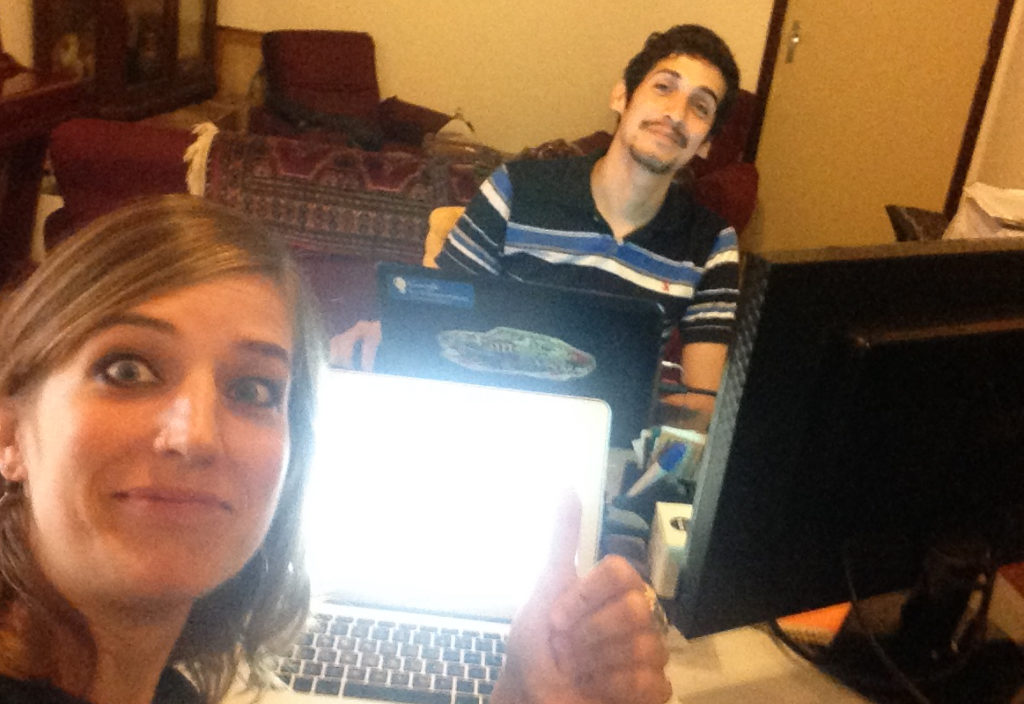
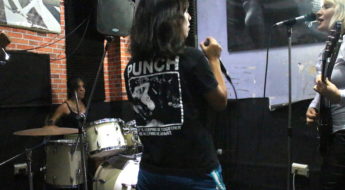
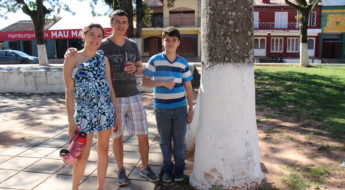


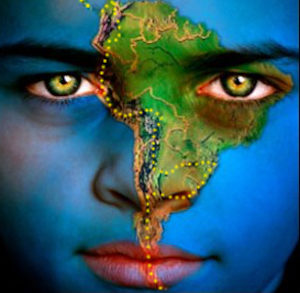
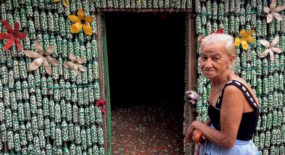





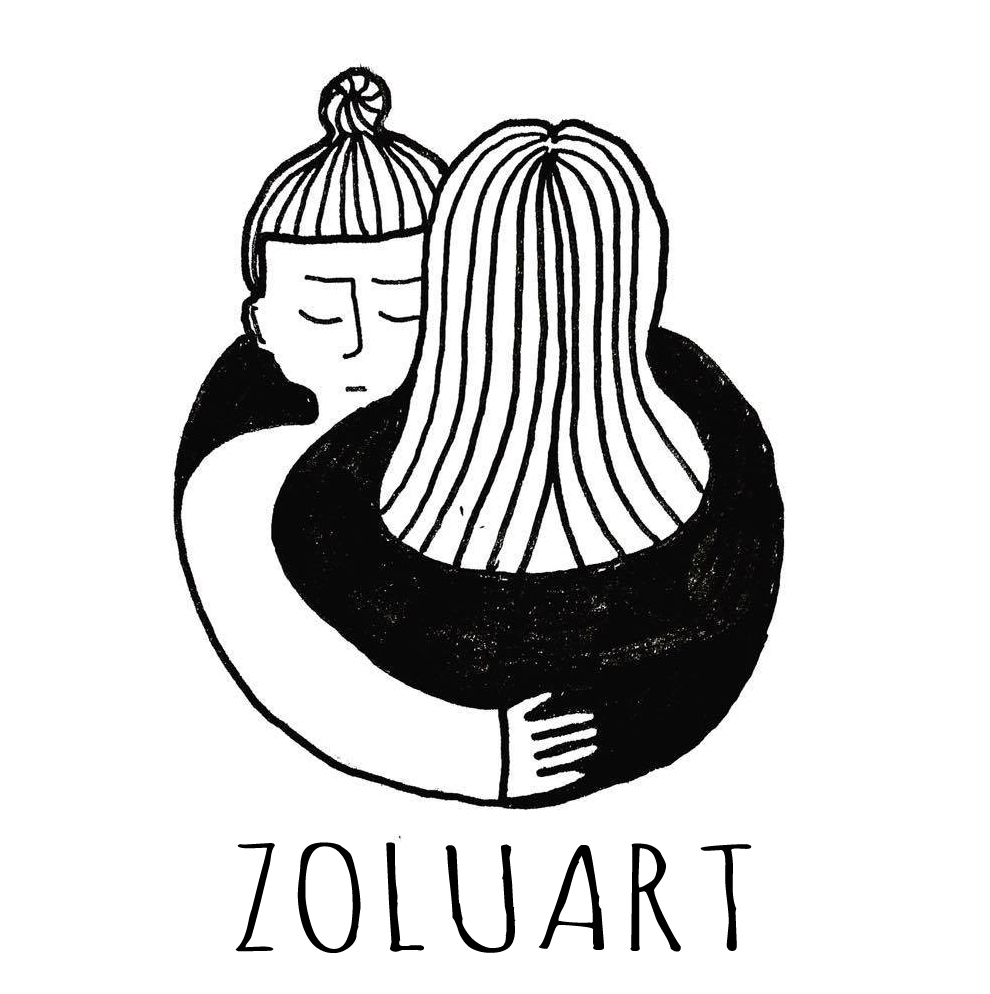



Great article on an important topic!
And the best possible woman to speak about it! Carmen has been a major influence in fighting for women’s rights in Latin America.